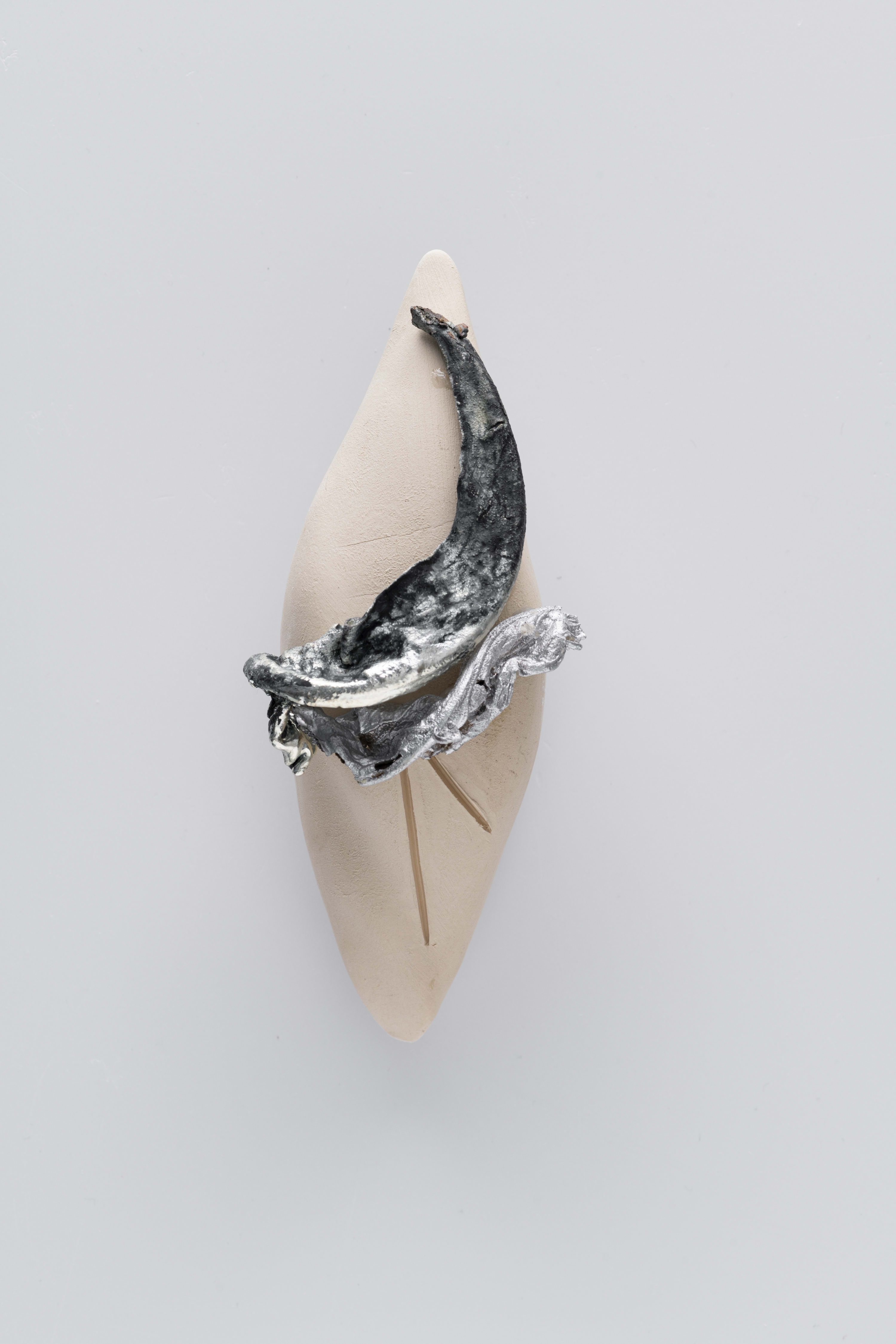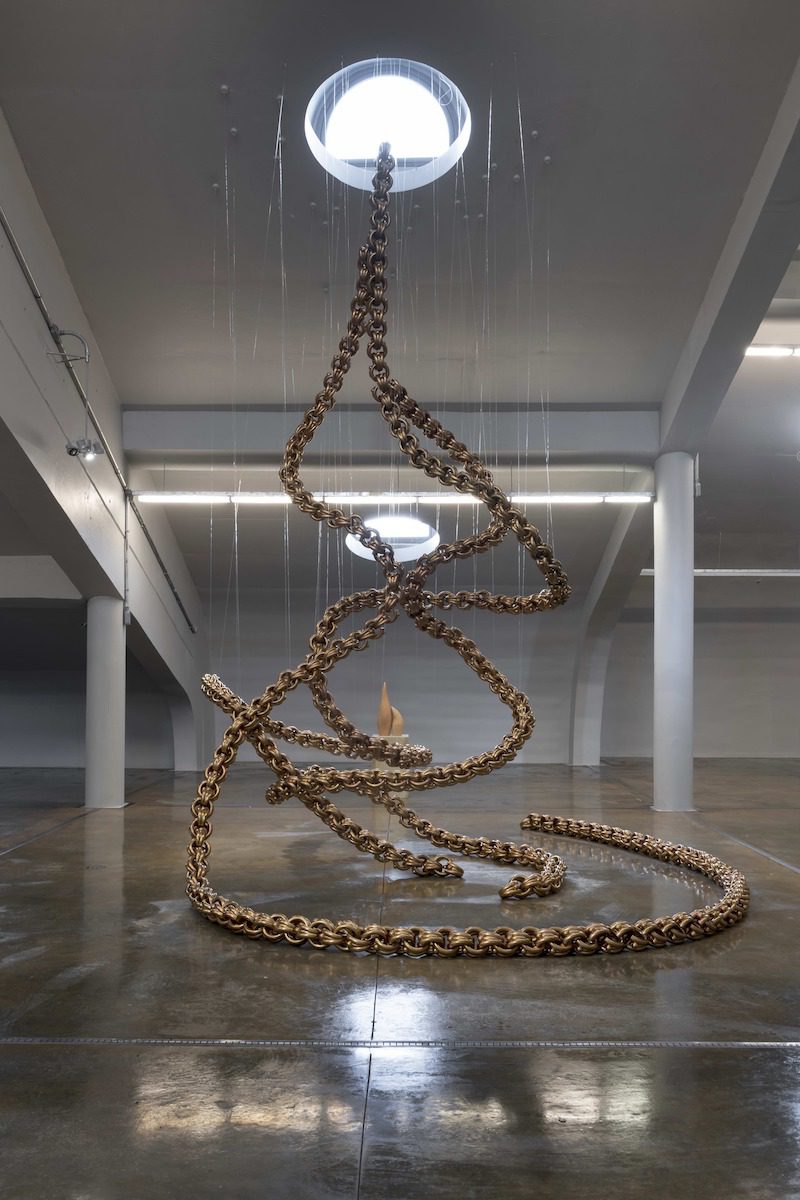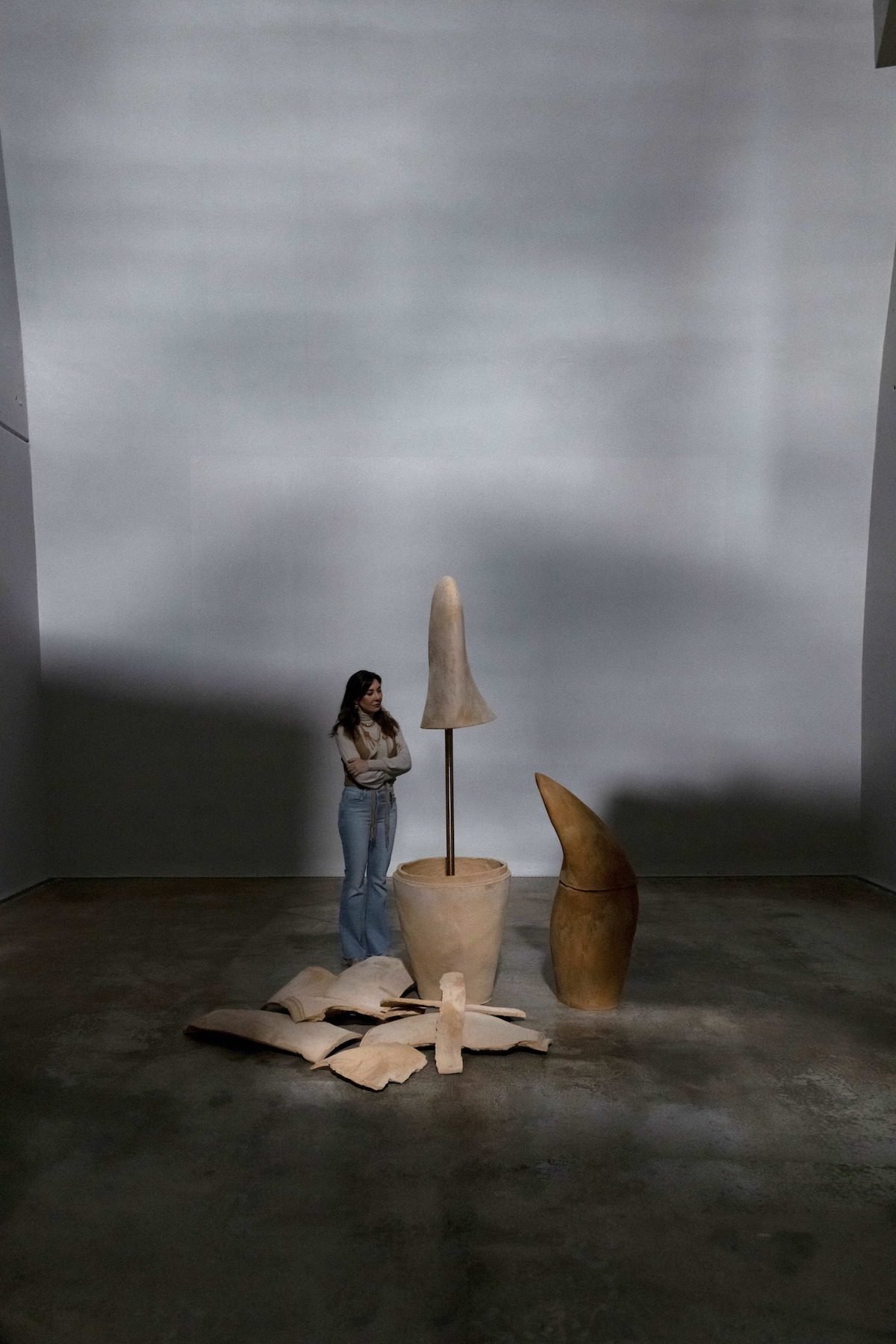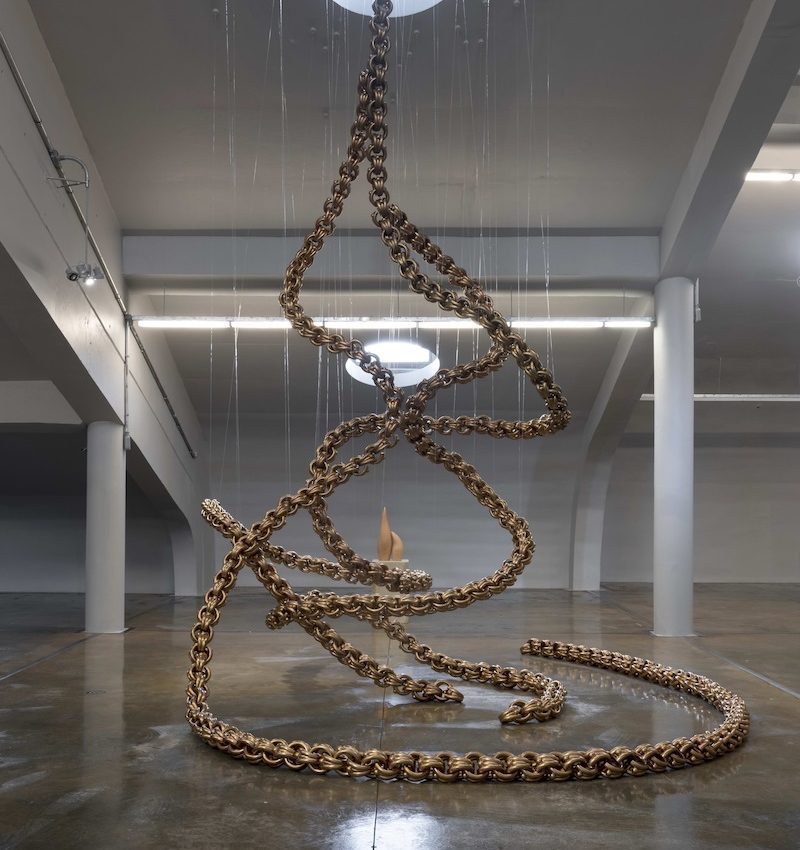Jun 20 - Oct 20
10:00 - 17:00
Location
Baksi Museum
Vuslat Sabanci’s artwork uses manufactured and natural materials to describe existential concepts in turn derived from natural processes. Her work suggests that we as much as generative processes of our surroundings, as our surroundings themselves. Her sculptures show objects that appear like materials in the process of becoming functional, reflecting a undefined relationship to humanity’s needs and strategies of industry; shelter, clothing, vessels, etc. This upcoming exhibition promises to expand on the her more human sized works with larger and grander spatial gestures, no less human but perhaps more cosmological in scope.
Exhibition notes: Vuslat Sabanci – Emanet
Vuslat Sabanci, announces forthcoming solo museum exhibition, ‘Emanet’ opening at Türkiye’s Baksı Museum
The Turkish artist and activist Vuslat announced her first solo museum exhibition, Emanet, which will take place at the Baksı Museum in Bayburt, Türkiye from 20 June to October 20, 2023.



For her first solo exhibition at the Baksi Museum in Bayburt, Vuslat has devoted herself for over a year to producing a new body of work presented under the title “The Soul of Emanet”. The various works, which use a manifold of artistic languages and materials including text, sculpture, drawing, audio, and installation, are committed to exploring the manifestations of the notion of “emanet”. Emanet is a concept that originated from the culture of modern-day Türkiye’s geography, which expresses and embodies the values of trust, devotion, deep loyalty, and guardianship.
Vuslat’s interest in this notion relates to her search for a concept capable of surpassing the pragmatism of our times, marked by a rational taxonomic way of thinking that divides life into lower and higher orders of importance, separating people from people and people from nature, making affective connections among us more and more impossible. Emanet emerges in her exhibition and in her philosophy as an almost magical force, an idea that embodies the very emotion of trust and the charm of a system of thought capable of waking us up to a further form of life. This awakening is achieved through a sincere effort to connect to ancestors, land, and traditions, through the exercise of listening and opening our senses to the experiences of others – today and in the past – and through the invocation of a culture of care and joy free of greed and indifference towards others.
Occupying the central place in Vuslat’s exhibition at Baksi is an umbilical cord installation that originates from a chain that belonged to the artist’s grandmother. The piece is the spine of a new being, one capable of reminding itself that a man is only a recent invention, that the human, as we know it today, is a figure not yet two centuries old, and that other versions of it, other human identities, are therefore not only possible but desirable.
The piece responds to Vuslat’s own history – since her own ancestors were from this beautiful northeast region – but stands there for all of us as the marker of the very possibility of a new individuum. Around that core piece, several other pieces alert us that the exhibition has a strong narrative flow that is embodied through the materials the different works use. These materials include sculptures of clay, plants casted in metal, amulets, repaired pieces that once broke but are now recomposed to recall recovery and healing, dynamic drawings, and the use of cloth and sound.
The exhibition, in Vuslat’s hands, becomes an immaterial medium that has the power to create a new form of space that integrates the light from the outside world. For some people, light may be nothing more than itself, but for Vuslat, it is a material that enables us to comprehend our everyday interaction with the cosmos. It is an energy that allows us to perceive surface, color, and space, immersing the viewers in a mysterious world inside the museum. At the Baksi Museum, Vuslat is creating her largest installation to date. The dancing clay sculptures, reminiscent of her former marble pieces, are imbued with a strong spiritual aura due to the use of clay, a simple but very symbolic material. This aura permeates all of her works, including her dynamic drawings made with natural pigments made by Vuslat using rocks and soil she collected from the surrounding. The powerful waves of lines that manifest in the drawings remind us that the walls are not just passive holders but also catalysts shaping reality with their energy. The drawings play a crucial role in reminding us of the importance of using all our senses to experience the exhibition fully.
Vuslat’s exhibition at the Baksi Museum is a mesmerizing connection between all of her works, making them appear as one cohesive entity. The exhibition showcases how the artist fluidly shifts between different media and her well-informed and well-researched exploration of the region, its customs, and traditions. Vuslat’s organic-material approach embodies her research in her practice, allowing her to manifest both present and past. The exhibition has a non-hierarchical approach towards the pieces, showcasing the relational and open structure of Vuslat’s methods.
“The Soul of Emanet” is a profound and thoughtful reflection on the possibility of a new life. It is an existence freed from the current capitalistic narratives of bio-power, which stress all the wonders humans and their creations can achieve, but also destroy. Placing our existence as a living being in relation to all existing forms of life is the only viable future. No intelligence can emerge outside the forces of life. Art has the mandate to transform all negative forces that make up our human legacy into positive ones to ensure survival in peace.
(Exhibition text by Chus Martinez)
Emanet is one of many high-profile cultural events taking place in Türkiye during 2023, including the recent unveiling of the Renzo Piano-designed Istanbul Modern Museum and the transformation of Istanbul’s art nouveau Botter Apartment into a Cultural Centre. Further art museums are also planned in Istanbul for the former Yedikule gasworks and Halic Shipyard.
Emanet opens at the Baksı Museum, Bayburt, Republic of Türkiye on 20 June 2023.















